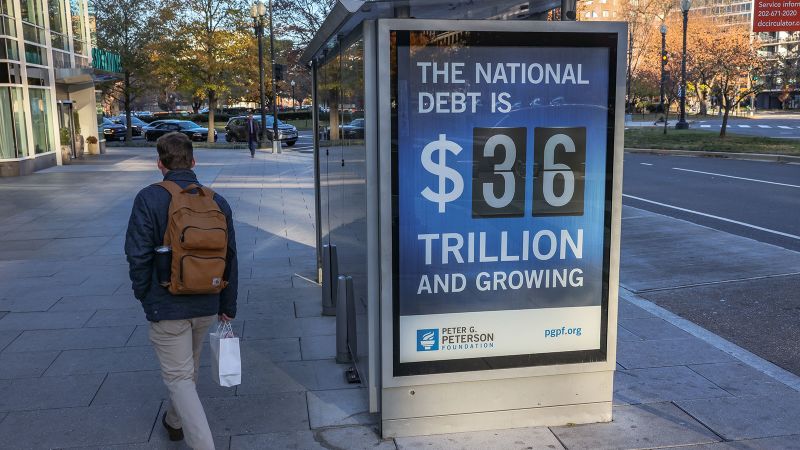In a recent development that set off alarms in Washington, one of America’s most strategic allies, Japan, hinted at a drastic financial maneuver during trade negotiations: the potential to sell off its substantial holdings in US debt. This surprising declaration came from Japanese Finance Minister Katsunobu Kato, who, during an interview with The Associated Press, stated that dumping US Treasuries is a “card on the table” in ongoing tariff discussions.
Kato elaborated further, indicating that while the option exists, the decision to exercise it would be a deliberate one. However, two days later, he swiftly backtracked on this bold assertion, clarifying that Japan is “not considering the sale of US Treasuries as a means of Japan-US negotiations.” Despite this retraction, Kato’s initial comment sparked widespread concern about the underlying dependence of the United States on foreign nations to finance its colossal $36 trillion debt.
Analysts argue that Japan’s volatile declaration, albeit likely hollow, underscores a grim reality: that American fiscal health hinges on other countries’ willingness to purchase its debt. The implications of a large-scale sell-off of US Treasuries could be catastrophic, as it would likely trigger a spike in interest rates, making borrowing costlier for the government and potentially destabilizing the market. While experts were skeptical about Japan pursuing such a drastic measure, the mere suggestion highlights the treacherous landscape of international relations and trade agreements.
Holding $1.1 trillion in US Treasuries, Japan possesses considerable leverage in its negotiations. If it were to execute a massive sell-off, the ripple effects would be felt globally, with Treasury rates likely shooting up and inciting turmoil among investors. Ernie Tedeschi, an economist at Yale, emphasized the far-reaching implications of a nation as significant as Japan stepping away from the Treasury market. He remarked that it could generate shockwaves that destabilize international financial markets.
The uncertainty in the bond market profoundly affects the dynamics of trade talks. Previous fears of a bond market collapse were significant enough to prompt President Donald Trump to delay proposed “reciprocal tariffs.” Furthermore, Japan is not alone in holding significant quantities of US debt, as China, which faces tariffs between 145%, remains the second-largest holder with $784 billion in Treasuries. Meanwhile, the UK and Canada, the third and sixth-largest holders of US Treasuries, respectively, are also navigating similar tensions in their trade relationships with America.
It’s important to note that for these nations, the consequences of offloading US debt could backfire, not only destabilizing the global markets but also jeopardizing their own economies. Dumping US Treasuries could severely impact their investments and financial institutions, hindering their ability to trade competitively on the international stage. Win Thin, a strategist at Brown Brothers Harriman, articulated the dual risks inherent in wielding the threat of selling off US debt.
Moreover, Maury Obstfeld from the Peterson Institute for International Economics remarked on the rashness of Japan’s initial comments, emphasizing that any hasty decision to quickly divest from Treasuries would lead to steep losses and potentially invite retaliatory tariffs. He pointed out that Japan’s reliance on American military support in the Asia-Pacific region makes such radical financial threats hazardous.
Despite the fluctuating political and economic landscape, there’s a consensus that US Treasuries remain integral to the world’s financial stability. The continuous threat of tariffs further complicates the matter. Kent Smetters, from the University of Pennsylvania’s Wharton School, noted the inverse relationship between tariffs and capital inflow, predicting that should full tariffs take effect, the US might face a situation of having to sell its future debts at less favorable terms.
In conclusion, the interplay between trade negotiations and fiscal health is intricate, underscoring how geopolitical tensions can reverberate through international financial markets. Japan’s recent remarks highlight the precariousness of relying on other nations to sustain US debt, while also revealing how intertwined economies are in today’s global landscape. The intertwining of politics and economics will continue to shape discourse as nations navigate their individual interests against collective global stability.



